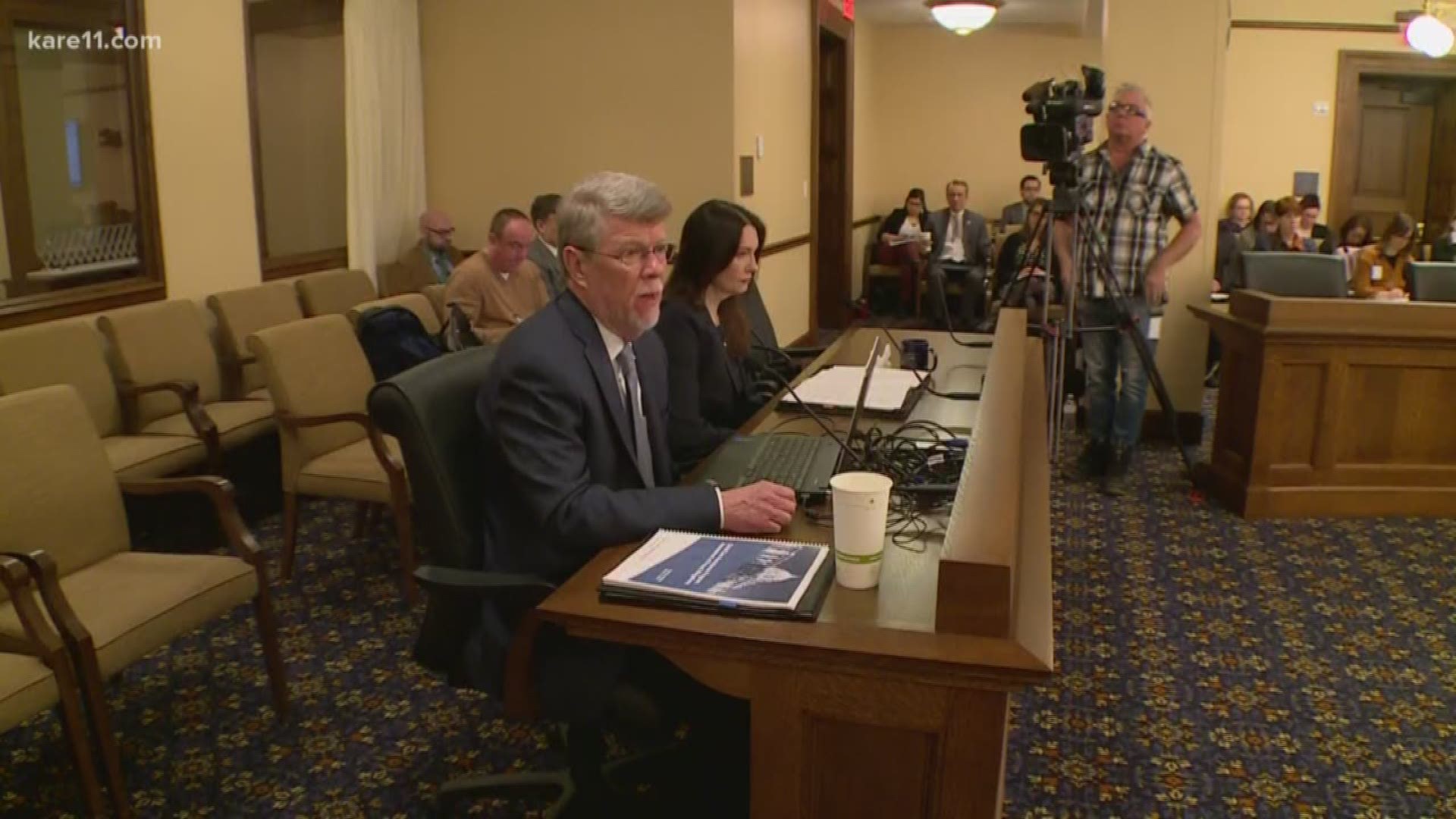ST PAUL, Minn. — Legislative Auditor James Nobles told lawmakers Wednesday he could not substantiate claims that child care assistance fraud amounts to $100 million per year, as a former Dept. of Human Services employee claimed.
"We agree that there is more fraud than has been proven by prosecutors," Nobles told a House panel.
"But we are trying to get to $100 million and we simply could not do that. We couldn’t find evidence to substantiate that there is $100 million in fraud in CCAP every year."
CCAP is the acronym for the Child Care Assistance Program, run by the DHS. It provides subsidies to lower income families to help offset the cost of child care.
In the past five years prosecutors have charged the owners and operators of a dozen Somali-owned daycare centers in the Twin Cities with bilking the state out of nearly $6 million by over billing the CCAP program.
Investigators compared surveillance videos with attendance records and the numbers of children the child care centers reported when billing DHS.
Nobles, in a long-awaited report to lawmakers, also said he can't substantiate claims from the same DHS employee, Scott Stillman, that proceeds from child care fraud were being sent to terrorists in Somalia.
That claim went viral after Stillman appeared in a KMSP-TV story, and repeated his opinion in a legislative hearing in 2018.
"We could not find evidence to substantiate that allegation, and I must say I’m not sure who could?" Nobles said.
The auditor pointed out that even federal agencies would have trouble tracking money Somali families send back to relatives in Africa.
"There’s a lot of money from a lot of sources sent overseas to Somalia for a lot of reasons."
He also noted it's common for immigrants to sent those remittances in cash because of the trouble wiring money to that nation.
Nobles urged lawmakers to work with DHS to exercise tighter control over licensing and monitoring of centers that receive CCAP money.
Elizabeth Stawicki, the legal counsel for the Office of Legislative Auditor, said proving intent to defraud the state is a difficult threshold for prosecutor to meet. But those same prosecutors said the system is ripe for abuse.
"One of things we heard over and over with the attendance records was that these are on paper, they can be easily manipulated. One prosecutor said to us, 'You know, these are almost comical'."
The top Republican in the Minnesota Senate read the report differently, saying it confirms "widespread and rampant fraud" in the program
Senate Majority Leader Paul Gazelka says this affects not just taxpayers, but families that need assistance and are still on the waiting list. Gazelka says Minnesotans are generous people, but they expect government to be accountable to them.
DHS Commissioner Tony Lourey, who has been on the job for three months, said any misuse of taxpayer money won't be tolerated. But he told lawmakers he doesn't want the important role of the program overshadowed by the fraud issues
"For most families child care is a basic necessity, and without that assistance fathers and mothers would not be able to go back to school or seek work," Commissioner Lourey said.
"We need to bring all stakeholders to the table and make sure we are doing it with a lens toward program integrity but never forgetting how important this program is for low income families."
Nobles shared an August letter from Jay Swanson, who heads the DHS fraud investigation team, saying he believes there may be 100 child care centers that exist solely for the purpose of filing fraudulent child care claims.
After receiving that letter, DHS hired an outside consultant to investigate the claim. That report, which was also released on Wednesday, couldn't substantiate Swanson's assessment. The consultant did agree the CCAP program needs more supervision and safeguards against fraud.
Lourey says his agency has a great deal of work ahead to better prevent, detect and investigate fraud.

